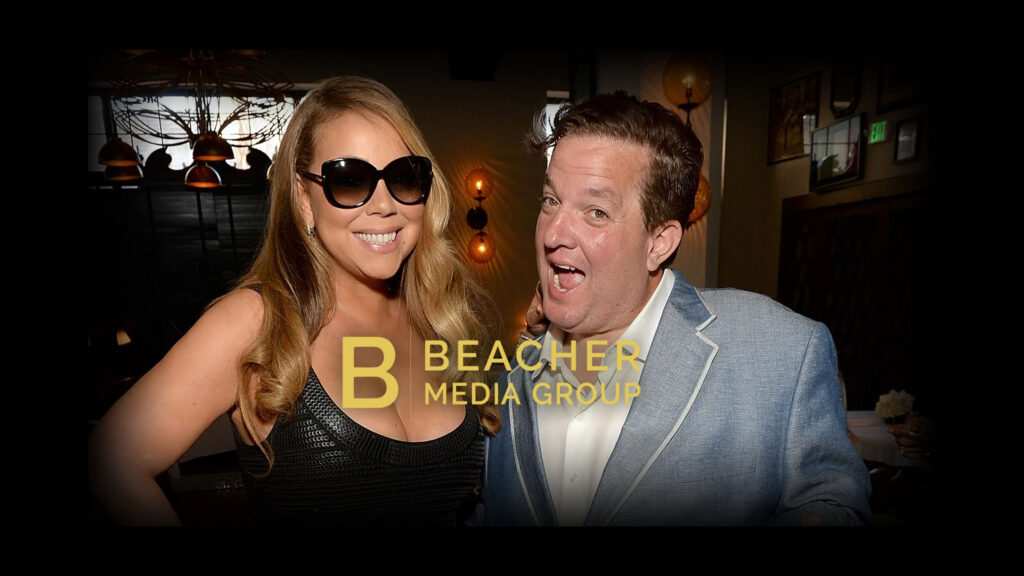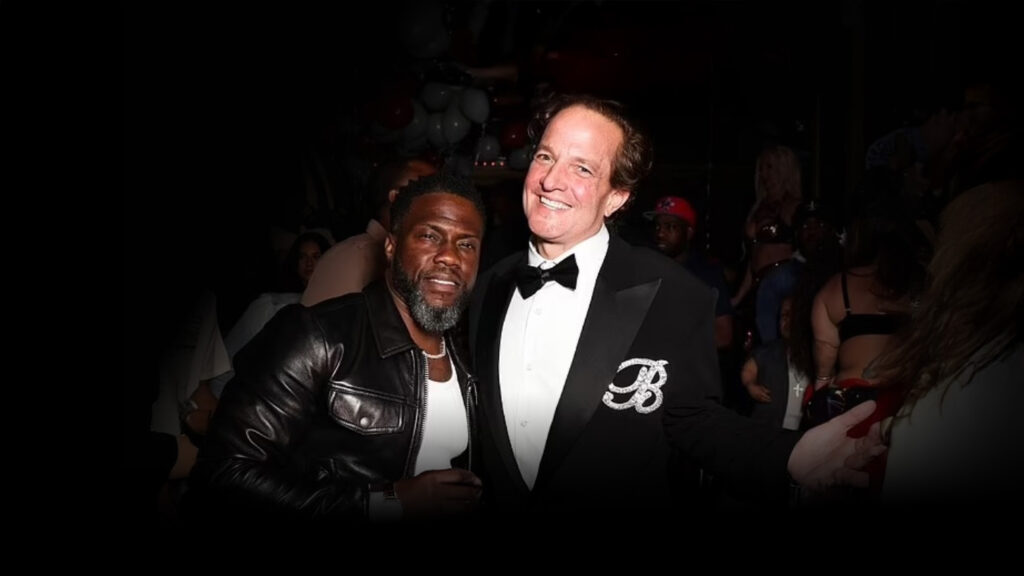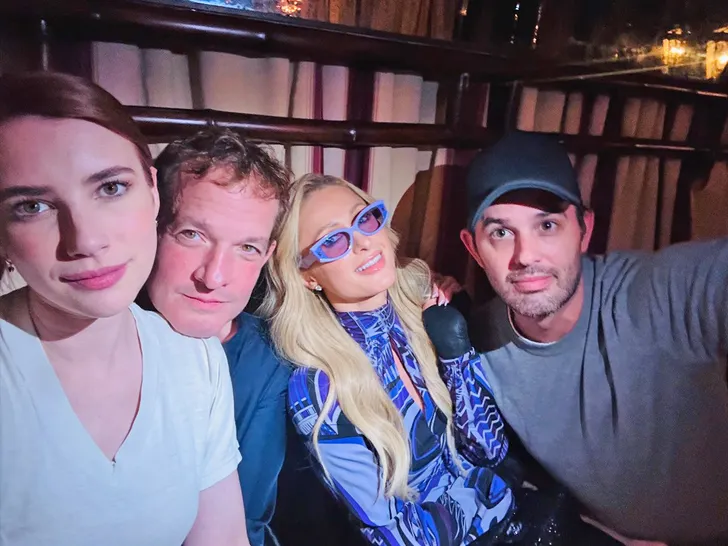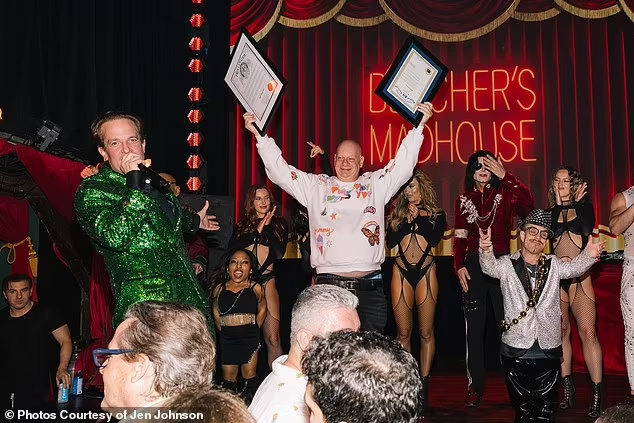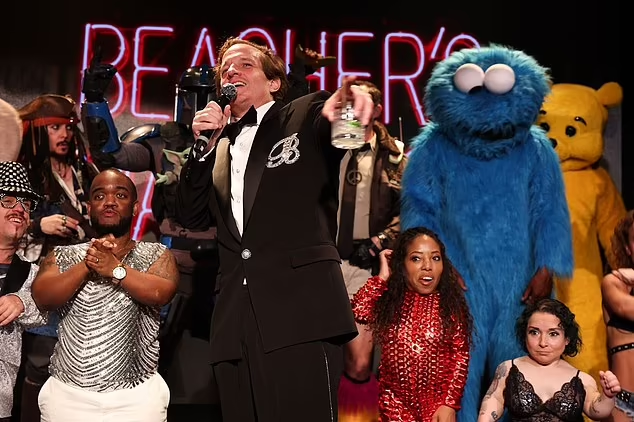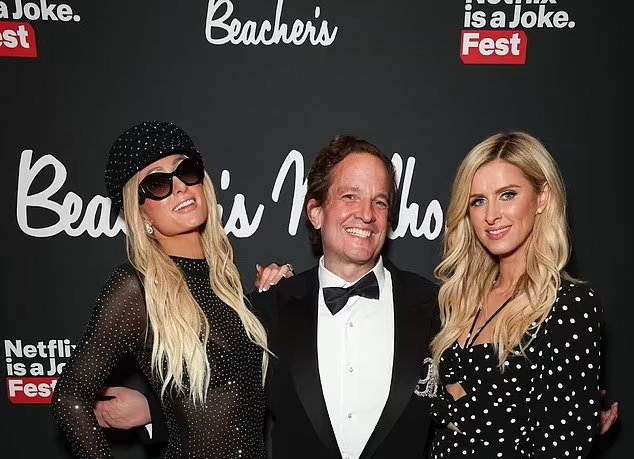Las Vegas showman Jeff Beacher helped the company pioneer a new form of celebrity marketing involving free mansions and promotional Instagram posts.
Read the original article HERE.

November 25, 2019 at 4:00 AM PST
For one week in the summer of 2015, consumers of celebrity gossip news couldn’t escape Mariah Carey’s trip to Malibu, California. Her stay at an Airbnb there, which she chronicled on Instagram, made headline writers swoon. It was covered in TMZ(“Mariah Carey: I USED AIRBNB… For My Sick Malibu Rental”), Page Six (“Inside Mariah Carey’s $10K-a-night Airbnb rental”) and PopSugar (“Mariah Carey’s $10,000-a-Night Airbnb Is the Ultimate Fantasy,” along with a slideshow).
But the pop star didn’t just happen to see the listing idly scrolling through the app. Carey was a test run of what would become a wildly successful celebrity marketing campaign for a young, scrappy startup. Airbnb Inc. covered the cost of the Malibu stay, and it was just the beginning. The company had relationships with about 65 celebrities and went on to provide free lodging for several of the world’s biggest stars, including Justin Bieber, Lady Gaga and Beyoncé.
All the company asked for in return was that, if they had a good time, they consider posting about it online.

Today, influencer marketing is a more than $6 billion industry. A single post can command upward of $1 million. But the lucrative practice has attracted scrutiny from U.S. regulators as influencers and celebrities blur the lines of content and advertising. Instagram recently came under fire over influencers shilling diet teas with ingredients approved for use only as laxatives. The Federal Trade Commission issued new guidance for social media disclosure this month.
But Airbnb’s celebrity marketing program, the details of which haven’t been previously reported, started before most people knew what an influencer was. It was a harbinger of the celebrity marketing bonanza to come and played a role in setting up Airbnb as an alternative to high-end resorts—now a key part of the company’s strategy as it seeks to justify a $31 billion valuation and go public next year.
As public investors look less kindly on money-losing tech companies, it helps that booking a beach-side villa is far more profitable than renting a spare bedroom in Queens, New York. To bolster that strategy, Airbnb made one of its largest-ever acquisitions in 2017 for a business called Luxury Retreats and introduced a mansion-rental service in summer 2018 called Airbnb Luxe.
“The Mariah relationship has become legendary for Airbnb,” says Jonathan Mildenhall, who was Airbnb’s chief marketing officer at the time.
Airbnb declined to provide details on its relationships with celebrities. “As a hospitality company that embraces hosting, we work with a number of celebrities and public personalities and often pick up the tab,” a spokeswoman wrote in an emailed statement.
Before a company can get a star to use and endorse its products to millions of followers, though, it has to get an introduction. At the time, Airbnb didn’t have the budget to go through the typical gatekeepers. Talent agencies that might broker a traditional sponsorship deal were prohibitively expensive, Mildenhall says.
So Brian Chesky, Airbnb’s chief executive officer, offered an unconventional idea. There was a guy in Las Vegas who ran a nightclub packed with celebrities, who were his friends; he hosted their parties; and they might just listen to his recommendations about a house-rental app. “Go and check this guy out,” Mildenhall recalls Chesky telling him. “See if it’s authentic.”

Chesky’s guy was Jeff Beacher. His nightclub, Beacher’s Madhouse, was the stuff of Las Vegas legend. Beacher himself was a nightlife institution, dubbed at different times a “celebrity showman” by Rolling Stone, a “great innovator” by Entrepreneur and a “corpulent clown prince” by the Las Vegas Weekly.
Beacher’s Madhouse started getting attention in Las Vegas in the mid-2000s. It was a vaudevillian bacchanal, with Beacher onstage as emcee often wearing a red satin ringmaster’s vest. The show featured little people costumed as Oompa Loompas dangling from the ceiling on zip lines to deliver bottles of Champagne to tables. There were sword swallowers, live goats, contortionists and performers known as Mini Britney Spears and Mini Donald Trump. At points, the show also claimed to feature the world’s smallest and the world’s oldest strippers.

But the most remarkable feature of Beacher’s Madhouse was the patrons: Celebrity news sites chronicled appearances by Bieber, Bradley Cooper, Leonardo DiCaprio and Mick Jagger at its Las Vegas and, later, Los Angeles locations. Miley Cyrus, Demi Lovato and Joe Jonas all threw birthday parties there. “You have this seven-and-a-half-foot transvestite and all these wild performers doing all kinds of crazy things like getting into washing machines and, you know, crushing hands with their giant boobs,” says Larry Rudolph, the talent manager for Britney Spears. “It was just a party.”
Beacher was, in short, just the kind of unconventional power broker Airbnb needed. His friendship with Mariah Carey was well documented. Beacher made the introductions, and after Carey’s first stay in July 2015, she traveled to another Airbnb a few months later. The following year, the singer again stayed with Airbnb in a $22 million Colorado mansion during an Aspen getaway.
Soon after Airbnb started working with Beacher, the startup knew something had clicked. Mildenhall, who ran marketing from 2014 to 2018, “realized that there was this authentic relationship between him and Mariah,” he says. “It wasn’t financially driven.”
Airbnb hired Beacher as an outside “entertainment relations consultant.” Here’s how it worked: Unlike the influencer marketing that’s become standard today, Mildenhall says no financial contracts were drawn and no money changed hands—unless you count the cost of the rental. (Which, to be clear, the FTC would.) The arrangements were largely informal. “It’s not, ‘Wear this handbag; I’ll give you $10,000,’” Mildenhall says. “If they enjoy it, if they have had a good experience, then they talk about that on their own social media platforms.”
Soon, Airbnb was racking up celebrity appearances: It housed Kylie Jenner in a $50 million, 23-bedroom complex in Turks and Caicos. It put up Spears in a $6,000-a-night Malibu villa for Valentine’s Day. And it sheltered all three Jonas brothers in a New York townhouse that had a pool with a waterfall.

But it was in 2016, less than a year into Beacher’s consulting contract, that the startup scored a real coup. After playing to more than 115 million people at the Super Bowl Halftime Show, Beyoncé retired to an opulent mansion in Los Altos Hills, California, equipped with an infinity pool, a chicken coop and 60 fruit trees. She posted a picture of herself on Facebook, sitting near a sleek outdoor fireplace at night, writing: “It was a super weekend Airbnb.”
There were dozens of articles about the exploit. E! News noted the property’s livestock, while the Washington Post and BuzzFeed raised questions about whether the post was sponsored. Either way, the hit turned into a streak. The following year, Lady Gaga posted a picture of herself in a different opulent mansion after her 2017 Super Bowl performance. She wrote: “Thank you @airbnb for the gorgeous home in Houston for #SB51.”
There are rules around disclosing sponsorships. The basic premise of the guidelines demands a “clear and conspicuous” disclaimer of any commercial relationship with the poster and the brand they’re posting about. But the rules leave room for interpretation and have historically not been stringently enforced. As a result, they’re routinely ignored. Ambiguous sponsored content, whereby a social media user receives pay or free goods that they then post about online, has “run rampant,” says Jeff Chester, executive director of the Center for Digital Democracy, a digital rights group.
In its work with celebrities, Airbnb says it was careful not to run afoul of regulators. “We adhere to FTC guidelines by incorporating them into our engagements with these individuals,” a spokeswoman wrote in an email.
Still, particularly in the early days, some celebrity posts about their Airbnbs occupied a gray area. In 2016, around the time the FTC stepped up enforcement of sponsored posts, Truth in Advertising, a consumer advocacy group, sent a letter to members of the Kardashian and Jenner family complaining of “a multitude of posts” about shoes, food and other products that did not clearly disclose commercial relationships, prompting the family to revise many of them. In one, wherein Kylie Jenner stood statuesquely in a white bathing suit above a sun-soaked pool, the text changed from, “Thanks for the birthday home, @airbnb,” to: “Thanks for the gift of a lovely birthday home, @airbnb.”
Lady Gaga similarly edited her original Super Bowl post to clarify that the Airbnb home was a “gift.” And after reporters asked if Beyoncé’s Super Bowl post was sponsored, she eventually deleted it.

More recently, as the FTC has updated its guidelines on what disclosures are required, celebrities’ simple thank-yous to Airbnb have generally been replaced with more explicit language, like the caption in this post from Bieber, which reads, “Thanks for hooking me up, @airbnb.” Instagram has also changed its policies to help address disclosures of commercial relationships for the burgeoning influencer marketing industry. An executive at the Facebook Inc.-owned app recently said there’s no evidence disclosure detracts from a campaign’s effectiveness.
“When Airbnb started working with celebrities, the guidelines weren’t clearly established,” Mildenhall wrote in an email. “We worked closely with the FTC to evolve our approach so that the posts clearly referenced that Airbnb had gifted the home for the duration of the stay. This is now commonplace practice for all celebrity endorsements.”
Beacher also says he made sure his deals were compliant with the “constantly evolving landscape” of FTC requirements, adding, “Each company I worked with has very black-and-white and strict policies when it comes to following FTC regulations.”
Last year, Mildenhall left Airbnb and started his own agency called TwentyFirstCenturyBrand. Beacher also ended his work with Airbnb in 2018, after a roughly three-year collaboration. Over that time, technology startups became a significant part of Beacher’s business. He served as a consultant for Lyft Inc. for two years and says he helped build out its celebrity marketing efforts. A Lyft spokeswoman says Beacher started working with the company’s culture and entertainment team a couple of years after it was formed and that the group is “thankful for his support.”
In conversation, Beacher is given to grand pronouncements. (“I am very good at the media,” he says.) But he is loath to talk about the specifics of his business relationships and is constantly worried about violating non-disclosures agreements. Asked for comment about the mechanics of his deals with Airbnb, Beacher wrote in an email: “The No. 1 rule of celebrity endorsements is to never discuss either side of an endorsement deal and always keep yourself behind the scenes.”
He is more open about his enthusiasm for vitamin drips, a procedure popular with such stars as Chrissy Teigen and Kendall Jenner, who once ended up in the hospital as a result, according to reports. Beacher, who now embraces a health-conscious lifestyle, often speaks publicly about how his time in the entertainment industry almost killed him.
In 2014, after more than a decade running Beacher’s Madhouse, he was depressed and gaining weight. “I got really crazy fat,” Beacher says over an arugula salad lunch in San Francisco, “like, morbidly obese, 440 pounds.” He blames the breakdown on the death of his business partner, stress and various medications he was taking at the time. “My friends gave me, like, a fat intervention,” Beacher says. He went to a raw vegan retreat in West Palm Beach, Florida, got gastric bypass surgery in 2015 and took a hiatus from work.
After that, Beacher pulled back from the fast-paced, late-night world of club-running and turned to more corporate pursuits. As Beacher began connecting celebrities with tech companies, word got around. “He became known in some of these circles as a person with connections to Silicon Valley,” says Rudolph, who has managed both Spears and Miley Cyrus. Beacher was the person to call, Rudolph says, “if somebody wanted to get in touch with Lyft or something like that.”
Today, Beacher says he’s working with about 10 companies. One of those is Wheels Labs Inc., an electric mini-bike rental startup founded by the brothers who created the dog-walking app Wag Labs Inc., where he was also a consultant. Wheels last month raised $50 million. A spokesman for the company says it has worked with Beacher to create more than a dozen customized bikes for celebrities.
But the world of online advertising has changed a lot since Beacher started. “Now it’s like every publicist in the world with a generic pitch deck using buzzwords is pitching big, five-, ten-thousand-dollar retainers,” he sighs. “It’s just very, very saturated.”
These days, Beacher says, he’s spending more time on other endeavors such as investing. For example, he holds stock in scooter startup Lime, most recently valued at $2 billion, as well as Health House LLC, a fitness chain co-founded by the son of Arnold Schwarzenegger and backed by the Winklevoss twins. Beacher recently got back from another vegan retreat, lost 20 pounds and over the summer was spotted on Rebel Wilson’s Instagram feed, cavorting at Walt Disney World.
In the Instagram photos, Cinderella’s Castle rises picturesquely in the background. Wilson’s caption reads: “Thanks to everyone at Disney for this incredible day.” Representatives for the actress and Walt Disney Co. didn’t respond to requests for comment as to whether the post was sponsored.
